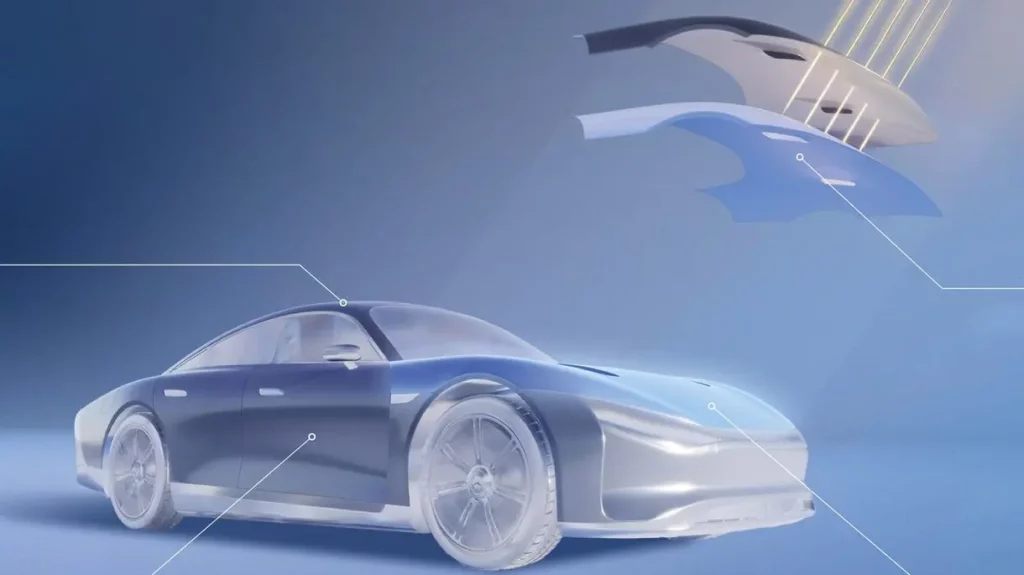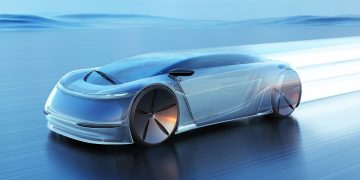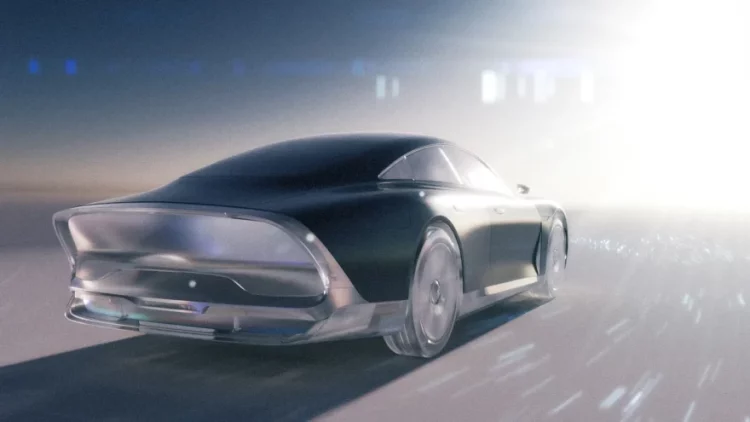Introduction: The Need for Sustainable Transportation
The transportation sector is one of the largest contributors to global greenhouse gas (GHG) emissions, primarily due to the widespread use of internal combustion engine (ICE) vehicles, which run on gasoline and diesel. These vehicles release substantial amounts of carbon dioxide (CO2), methane (CH4), and nitrous oxide (N2O), all of which are potent greenhouse gases (GHGs) that accelerate climate change.
As the world faces the urgent need to reduce carbon emissions and mitigate climate change, electric vehicles (EVs) have emerged as a promising solution to curb the environmental impact of traditional transportation. Unlike their gasoline-powered counterparts, electric vehicles operate without emitting tailpipe pollutants, offering a significant reduction in GHG emissions. This article explores the advantages of electric vehicles over traditional gasoline cars in reducing greenhouse gas emissions and their role in promoting a sustainable future.
Section 1: Direct Emission Reduction
1.1 Zero Tailpipe Emissions
One of the primary advantages of electric vehicles over traditional gasoline cars is that EVs produce zero tailpipe emissions. This means that while a traditional internal combustion engine vehicle constantly releases harmful pollutants, such as carbon dioxide (CO2), nitrogen oxides (NOx), and particulate matter (PM) through its exhaust, electric vehicles have no such emissions at the point of use.
- Carbon Dioxide (CO2): The most significant greenhouse gas emitted by conventional vehicles, CO2, is produced when gasoline or diesel fuel is burned. Electric vehicles, by contrast, have no tailpipe and therefore do not produce CO2 while driving. This direct reduction in CO2 emissions is one of the key ways EVs contribute to reducing global warming.
- Nitrogen Oxides (NOx): NOx is another harmful pollutant associated with combustion engines, contributing to the formation of smog and acid rain. Since EVs have no internal combustion engine, they do not emit NOx, making them significantly cleaner than traditional vehicles.
- Particulate Matter (PM): Particulate emissions, particularly fine particles (PM2.5), are another health hazard that comes from the exhaust of traditional vehicles. EVs do not emit particulate matter directly from the tailpipe, resulting in cleaner air and a lower environmental impact.
By eliminating these emissions, EVs offer a clear advantage over conventional gasoline-powered vehicles in terms of directly reducing greenhouse gases and other air pollutants.
Section 2: Indirect Emission Reduction through Energy Efficiency
2.1 Higher Energy Efficiency
Electric vehicles are significantly more energy-efficient than traditional gasoline cars. While an internal combustion engine typically converts only about 20-30% of the energy in gasoline into usable power for driving, an electric vehicle can convert more than 80% of the electrical energy stored in its battery into power for the wheels. This means that EVs make better use of the energy they consume, leading to lower overall energy consumption and fewer emissions over their lifetime.
- Energy Conversion Efficiency: Electric motors are inherently more efficient than internal combustion engines. The high efficiency of EVs means that for every unit of energy consumed, they travel further compared to gasoline-powered cars, which requires more fuel for the same distance.
- Lower Overall Emissions: This higher energy efficiency translates into lower carbon emissions per mile driven. Even when EVs are charged from the conventional grid (which may rely on fossil fuels), they typically still generate fewer emissions than traditional vehicles due to their superior energy efficiency.
By reducing the total energy required for transportation, electric vehicles indirectly help to reduce GHG emissions when compared to their fossil fuel-powered counterparts.
Section 3: The Role of Renewable Energy in Electric Vehicle Emissions Reduction
3.1 Integration with Clean Energy Sources
One of the most compelling reasons for the superior environmental performance of electric vehicles is their ability to be powered by renewable energy sources, such as solar, wind, or hydropower. When EVs are charged using electricity generated from clean, renewable sources, their carbon footprint becomes even smaller, and they can be considered as truly zero-emission vehicles.
- Solar and Wind Energy: By using solar and wind energy to charge electric vehicles, the carbon emissions associated with transportation can be virtually eliminated. This makes EVs an essential tool in achieving a low-carbon future, especially in regions that are transitioning to clean energy sources.
- Grid Decarbonization: As the grid becomes cleaner with increasing investments in renewable energy, the environmental advantages of electric vehicles will continue to grow. As the share of renewable energy in the grid mix increases, the carbon footprint of electric vehicles will decrease, further reinforcing the role of EVs in combating climate change.
- Energy Storage and Grid Flexibility: Electric vehicles can also play a role in energy storage and grid stability through vehicle-to-grid (V2G) technology, which allows EVs to store excess electricity and return it to the grid when demand is high. This helps integrate more renewable energy into the grid and reduces the reliance on fossil fuels, enhancing the overall sustainability of the energy system.

Section 4: Reduced Life Cycle Emissions of Electric Vehicles
4.1 Emissions Over the Vehicle’s Lifetime
When considering the environmental benefits of electric vehicles, it is important to look at lifetime emissions, which include not only tailpipe emissions but also emissions from vehicle manufacturing and battery production. While it is true that manufacturing electric vehicles, particularly the batteries, can result in higher emissions compared to traditional vehicles, these emissions are generally offset over the life of the vehicle.
- Battery Production: The production of batteries, especially lithium-ion batteries used in EVs, can have a higher initial environmental cost due to the mining and processing of materials like lithium, cobalt, and nickel. However, advancements in battery recycling and the development of more sustainable battery production methods are already reducing the environmental impact of battery manufacturing.
- Reduced Lifetime Emissions: Once on the road, electric vehicles have a much lower environmental impact over their entire lifetime than gasoline-powered vehicles. Due to their zero tailpipe emissions and higher energy efficiency, EVs typically result in lower total GHG emissions, even when accounting for the emissions associated with their production.
- Battery Recycling: The growing focus on improving battery recycling technologies will further reduce the carbon footprint of electric vehicles, making them an even more sustainable option for the future.
Section 5: The Potential of Widespread EV Adoption for Global Emissions Reduction
5.1 Scaling Up Electric Vehicle Adoption
As the world transitions to more sustainable energy sources and the adoption of electric vehicles accelerates, the potential impact on global greenhouse gas emissions is enormous. Studies suggest that if electric vehicles were adopted on a large scale, global transportation emissions could be reduced by up to 50% by 2050.
- Transitioning Away from Fossil Fuels: The widespread adoption of EVs would significantly reduce the demand for gasoline and diesel, curbing the extraction and combustion of fossil fuels. This shift would play a pivotal role in reducing the overall carbon emissions associated with transportation.
- Policy and Incentives: Government policies, such as subsidies for electric vehicles, carbon taxes on high-emission vehicles, and emission standards for the automotive industry, will be crucial in driving the transition to electric mobility. As more countries implement supportive policies and the cost of electric vehicles continues to fall, EV adoption will become increasingly mainstream.
- Global Impact: As countries around the world, including China, Europe, and the United States, set ambitious targets for EV sales and emissions reductions, the environmental benefits of electric vehicles will extend beyond individual countries to have a global impact on greenhouse gas emissions.
Conclusion: Electric Vehicles as a Key Solution in Reducing Greenhouse Gas Emissions
Electric vehicles offer a significant advantage over traditional gasoline-powered vehicles in reducing greenhouse gas emissions. From their zero tailpipe emissions and superior energy efficiency to their potential for integration with renewable energy sources and the decarbonization of the grid, EVs play a crucial role in mitigating climate change.
While the transition to electric vehicles may present challenges in terms of manufacturing emissions and infrastructure development, the long-term environmental benefits far outweigh these initial concerns. As governments, industries, and consumers increasingly adopt electric vehicles, the global transportation sector will be able to significantly reduce its contribution to global warming and create a cleaner, more sustainable future for generations to come.











































